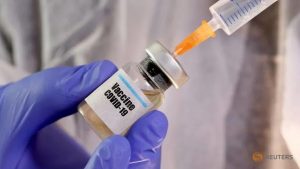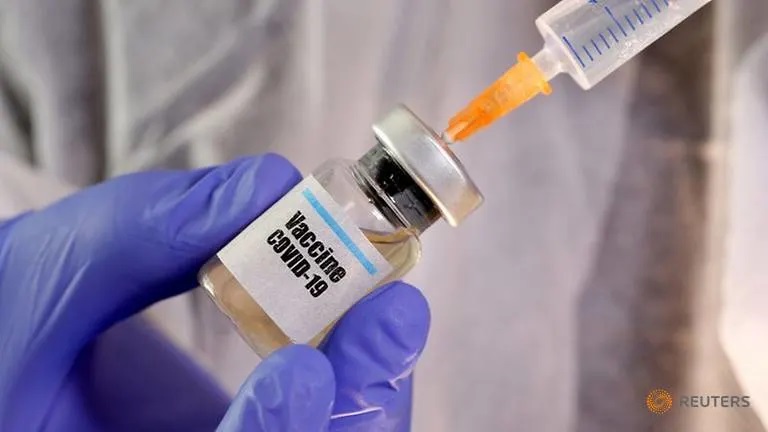
File illustration of a woman holding a small bottle labelled Vaccine COVID-19 and a medical syringe.
GENEVA: The World Health Organization (WHO) warned on Monday (Aug 3) that, despite strong hopes for a vaccine, there might never be a “silver bullet” for COVID-19.
More than 18.14 million people around the world are reported to have been infected with the disease and 688,080 have died, according to a Reuters tally.
WHO director-general Tedros Adhanom Ghebreyesus and WHO emergencies head Mike Ryan exhorted all nations to rigorously enforce health measures such as mask-wearing, social distancing, hand-washing and testing.
“The message to people and governments is clear: ‘Do it all’,” Tedros told a virtual news briefing from the UN body’s headquarters in Geneva. He said face masks should become a symbol of solidarity round the world.
“A number of vaccines are now in Phase 3 clinical trials and we all hope to have a number of effective vaccines that can help prevent people from infection. However, there’s no silver bullet at the moment – and there might never be.”
Ryan said countries with high transmission rates, including Brazil and India, needed to brace for a big battle. “The way out is long and requires a sustained commitment,” he added.
CHINA MISSION
The WHO began pressing China in early May to invite in its experts to help investigate the animal origins of COVID-19.
The UN health agency sent an epidemiologist and an animal health specialist to Beijing on Jul 10 to lay the groundwork for a probe aimed at identifying how the virus entered the human species.
Their scoping mission is now complete, said Tedros.
“The WHO advance team that travelled to China has now concluded their mission to lay the groundwork for further joint efforts to identify the virus origins,” he said.
“WHO and Chinese experts have drafted the terms of reference for the studies and programme of work for an international team, led by WHO.
“The international team will include leading scientists and researchers from China and around the world.
“Epidemiological studies will begin in Wuhan to identify the potential source of infection of the early cases. Evidence and hypotheses generated through this work will lay the ground for further, longer-term studies.”
The pair have not yet returned to the WHO’s Geneva headquarters for a debriefing.
Scientists believe the virus jumped from animals to humans, possibly from a market in the city of Wuhan selling exotic animals for meat.
Chinese officials said early in the outbreak that the virus may have spread from a market in the city, which sold live and wild animals, but no further confirmation of that has been revealed.



